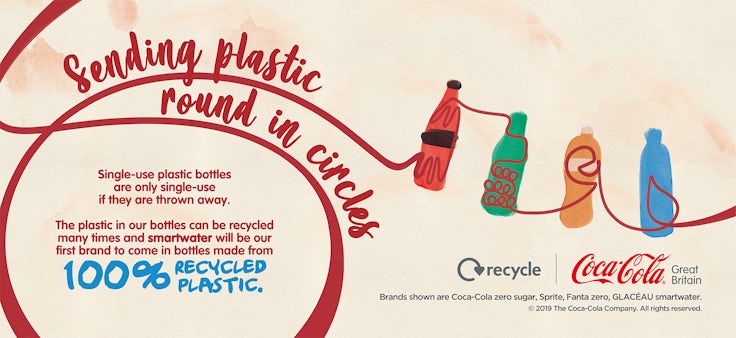A true purpose creates value for society as well as shareholders
The pressure marketers and brand leaders face to create value from purpose is growing. But many still struggle to understand how to realise its potential and the role it plays in recovery.

Research conducted by the GOOD Agency and YouGov reveals that two in three marketers view purpose as the main way through which to recover from the current crisis. But only a quarter plan to commit more resource to it this year.
This ‘tipping point’ is being driven by consumer demand, accelerated by the crisis, and ranks as the number one factor influencing marketing decision-making relating to purpose. However, the same research also reveals a ‘lack of resource’ and ‘other priorities’ as the main reason why businesses are failing to deliver any actions of substance to truly demonstrate their commitment.
The consequence? Brands are left exposed in an era where consumers and employees are increasingly critical and unforgiving. So, what can marketers do to convince their board that purpose deserves a seat at the table?
GOOD is hosting a two-part online event series to help bring clarity to purpose. Sign up here.
A business’s role is to create value, but shareholder primacy has grossly distorted this. It was – and still is – treated by many business leaders as justification to pursue profit, regardless of who or what is impacted. This creates an imbalance in the ecosystem that a business needs in order to create value; that of a healthy society and sustainable environment. The consequences are devastating. Shareholder primacy has also corrupted the moral integrity a business needs to build trust.
The irony is that the principle of shareholder primacy is now the cause of the greatest damage and risk to shareholder value ever experienced. And while it remains true that a business’s role is to create value, all businesses are now being asked two questions: how are you creating value, and who are you creating value for?
Purpose is business-critical
The answer to these questions is at the heart of a business’s purpose and requires business leaders to look beyond short-term profit to the creation of greater value.
The rapid growth in purpose is a human-driven phenomenon and it is creating business-critical challenges. Attracting and retaining the best talent. Becoming the ‘brand of choice’ in the face of increased consumer discernment. The need to reflect the values of the people investors are acting on behalf of. Securing social licence to operate from the very communities the business depends on.
Businesses that demonstrate a commitment to purpose have the power to address those challenges head-on by having a positive impact on society and the environment it depends on to thrive.
Purpose is not corporate social responsibility (CSR). That is now expected of every business. CSR defends value rather than creates value. Neither is purpose a short-term, cause-led marketing campaign or a more purposeful brand positioning. None of these on their own will create value beyond a launch. In fact, there is a strong possibility they will devalue the brand or business.
How to create value through purpose
So, what role do marketers have in generating the longer-term value that purpose creates? Increasingly, marketing departments are expected to not only define a brand’s purpose but to also make the case for investment to the executive team.
It has become crucial for marketers to fully understand how to define a purpose that is not only compelling and authentic, but that also delivers clear measurable value back to the business. Our advice: value creation is in the act of demonstrating purpose, not in the claim of having it.
There are three elements to achieving this:
Intention: Clearly define how your business intends to make a positive impact on society and the environment that is relevant to your brand, while creating value for the business and your individual stakeholders – ie your purpose.
Integration: Purpose informs and influences decisions and behaviours across the business, but investment in key purpose-led activations provides evidence of commitment and is the vehicle for creating value.
Inspiration: Purpose needs a galvanised and highly motivated network of people, inspired by the ambition, to be successful. This requires compelling creative communications as well as a clear role in the story for each stakeholder, giving them a sense of belonging, ownership and agency.
Businesses that demonstrate a commitment to purpose will attract the best talent, have more resilient customers, differentiate from their competition, de-risk their operations and increase opportunities for growth – all while tackling some of the fundamental social and environmental challenges we face.
Clear, compelling, and creative communication is fundamental to the coherent expression of a business’s purpose, and to galvanising the support required to generate value from purpose.
Purpose will change how brand and marketing departments function and will broaden operational remits. Marketers are now at the very fulcrum of creating long-term, sustainable value for their business and individual stakeholders, as well as society and the environment.
Now is the time for marketers to lean into the challenge.
GOOD will be joined by guest speakers from Lego, Barnardo’s, Simplyhealth and Canvas8 in its two-part ‘Ultimate Purpose’ virtual event series. Sign up via the links below:
‘Realise the Value of Purpose’, Thursday 15 October, 3pm BST






